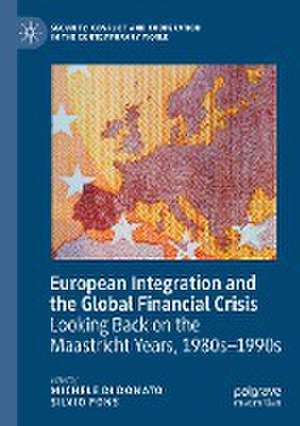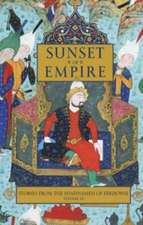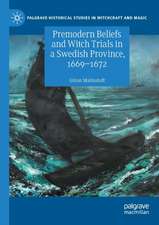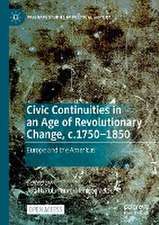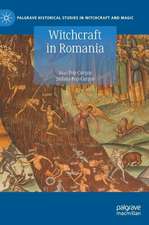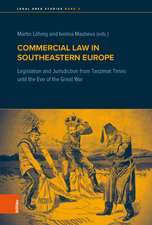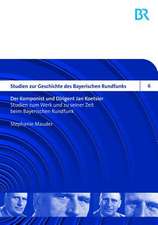European Integration and the Global Financial Crisis: Looking Back on the Maastricht Years, 1980s–1990s: Security, Conflict and Cooperation in the Contemporary World
Editat de Michele Di Donato, Silvio Ponsen Limba Engleză Paperback – 13 dec 2023
| Toate formatele și edițiile | Preț | Express |
|---|---|---|
| Paperback (1) | 877.67 lei 6-8 săpt. | |
| Springer International Publishing – 13 dec 2023 | 877.67 lei 6-8 săpt. | |
| Hardback (1) | 881.40 lei 6-8 săpt. | |
| Springer International Publishing – 13 dec 2022 | 881.40 lei 6-8 săpt. |
Din seria Security, Conflict and Cooperation in the Contemporary World
- 20%
 Preț: 689.79 lei
Preț: 689.79 lei - 20%
 Preț: 629.09 lei
Preț: 629.09 lei -
 Preț: 380.13 lei
Preț: 380.13 lei - 15%
 Preț: 519.11 lei
Preț: 519.11 lei - 18%
 Preț: 762.08 lei
Preț: 762.08 lei - 18%
 Preț: 772.17 lei
Preț: 772.17 lei - 15%
 Preț: 574.60 lei
Preț: 574.60 lei - 15%
 Preț: 681.57 lei
Preț: 681.57 lei - 18%
 Preț: 876.91 lei
Preț: 876.91 lei -
 Preț: 379.39 lei
Preț: 379.39 lei - 15%
 Preț: 463.75 lei
Preț: 463.75 lei - 15%
 Preț: 627.51 lei
Preț: 627.51 lei -
 Preț: 378.43 lei
Preț: 378.43 lei -
 Preț: 473.35 lei
Preț: 473.35 lei -
 Preț: 377.69 lei
Preț: 377.69 lei -
 Preț: 376.71 lei
Preț: 376.71 lei -
 Preț: 385.06 lei
Preț: 385.06 lei - 18%
 Preț: 765.33 lei
Preț: 765.33 lei - 15%
 Preț: 627.99 lei
Preț: 627.99 lei - 15%
 Preț: 628.60 lei
Preț: 628.60 lei -
 Preț: 384.10 lei
Preț: 384.10 lei -
 Preț: 378.80 lei
Preț: 378.80 lei - 15%
 Preț: 627.82 lei
Preț: 627.82 lei -
 Preț: 374.25 lei
Preț: 374.25 lei - 15%
 Preț: 576.68 lei
Preț: 576.68 lei -
 Preț: 376.93 lei
Preț: 376.93 lei - 18%
 Preț: 718.79 lei
Preț: 718.79 lei - 18%
 Preț: 876.74 lei
Preț: 876.74 lei - 15%
 Preț: 687.99 lei
Preț: 687.99 lei - 15%
 Preț: 691.35 lei
Preț: 691.35 lei - 15%
 Preț: 578.29 lei
Preț: 578.29 lei -
 Preț: 380.34 lei
Preț: 380.34 lei - 18%
 Preț: 773.10 lei
Preț: 773.10 lei -
 Preț: 384.10 lei
Preț: 384.10 lei
Preț: 877.67 lei
Preț vechi: 1070.33 lei
-18% Nou
Puncte Express: 1317
Preț estimativ în valută:
168.05€ • 174.99$ • 139.43£
168.05€ • 174.99$ • 139.43£
Carte tipărită la comandă
Livrare economică 14-28 februarie
Preluare comenzi: 021 569.72.76
Specificații
ISBN-13: 9783031067990
ISBN-10: 3031067991
Pagini: 358
Ilustrații: XX, 358 p. 9 illus., 8 illus. in color.
Dimensiuni: 148 x 210 mm
Greutate: 0.49 kg
Ediția:1st ed. 2023
Editura: Springer International Publishing
Colecția Palgrave Macmillan
Seria Security, Conflict and Cooperation in the Contemporary World
Locul publicării:Cham, Switzerland
ISBN-10: 3031067991
Pagini: 358
Ilustrații: XX, 358 p. 9 illus., 8 illus. in color.
Dimensiuni: 148 x 210 mm
Greutate: 0.49 kg
Ediția:1st ed. 2023
Editura: Springer International Publishing
Colecția Palgrave Macmillan
Seria Security, Conflict and Cooperation in the Contemporary World
Locul publicării:Cham, Switzerland
Cuprins
Chapter 1. Introduction (Michele Di Donato).- Part 1: The European Community and Late 20th Century Globalization.- Chapter 2. The Single Market: A Race to the Bottom or Convergence towards High Standards? (1985-1997) (Laurent Warlouzet).- Chapter 3. Economic and Monetary Union (Lucia Quaglia).- Chapter 4. Global Europe at the End of the Cold War. The Demise of the North-South Dimension? (Sara Lorenzini).- Chapter 5. The Accession of the Neutrals: (Re)assessing the First Post-Cold War Enlargement of the EU (Maximilian Graf).- Part 2: Political Cultures and Societal Actors.- Chapter 6. The End of European History? The European People’s Party and the Transformation of Europe from Cold War to post-Cold War (Wolfram Kaiser).- Chapter 7. The European Social Democrats: Neoliberalism or Internationalism? (Michele Di Donato) .- Chapter 8. The European Trade Union Confederation: A Labor Movement among EU Institutions and their Constraints (Paolo Borioni).- Part 3: Negotiating the New Europe: National Perspectives.- Chapter 9. Flawed Designs? France and the Maastricht treaty (Frédéric Bozo) .- Chapter 10. Negotiating the New Europe: Germany (Guido Thiemeyer) .- Chapter 11. The High Point of British Europeanism? John Major, Britain and the Maastricht Negotiations (N. Piers Ludlow) .- Chapter 12. Italy and the Maastricht Treaty: An Unpredictable Fateful Choice? (Antonio Varsori) .- Chapter 13. Greece and the Maastricht Treaty: The Fortress That Wasn’t, (Nicos Christodoulakis) .- Chapter 14. The Iberian Peninsula and the Challenge of European integration (Maria Elena Cavallaro).- Part 4: Conclusion.- Chapter 15. Europe beyond the Cold War (Federico Romero)
Notă biografică
Michele Di Donato is Assistant Professor of Contemporary History at the University of Pisa in Italy. His research focuses on the international history of the European Left, the Cold War and late-twentieth century globalisation.
Silvio Pons is Professor of Contemporary History at the Scuola Normale Superiore of Pisa in Italy. He is the president of the Gramsci Foundation in Rome and a member of the Editorial Board of the Journal of Cold War Studies.Textul de pe ultima copertă
Offering a fresh take on a crucial phase of European history, this book explores the years between the 1980s and 1990s when the European Union took shape. Whilst contributing to existing literature on the Maastricht Treaty and European integration at the end of the twentieth century, the book also brings those debates into the twenty-first century and makes connections with longer-term issues. The transformation of the European political climate in the wake of the global financial crisis in 2008, and the watershed Brexit vote in 2016, has made it all the more urgent to reconsider the way scholars and opinion-makers have looked at European integration in the past. Drawing from recently released archival documents, the authors analyse European cooperation as part of the broader international history in which it unfolded, taking into account the changes in the Cold War order and the advance of a new phase of globalisation. Comparing and contrasting the debates, objectives and achievementsof the 1980s and 1990s with the current political landscape of the European Union, this book proposes a novel interpretation of the choices that were made during the Maastricht years, and of their longer-term consequences.
Michele Di Donato is Assistant Professor of Contemporary History at the University of Pisa in Italy. His research focuses on the international history of the European Left, the Cold War and late 20th Century globalisation
Silvio Pons is Professor of Contemporary History at the Scuola Normale Superiore of Pisa in Italy. He is the president of the Gramsci Foundation in Rome and a member of the Editorial Board of the Journal of Cold War Studies.Caracteristici
Explores the years between the 1980s and 1990s when the European Union took shape Analyzes European cooperation as part of the broader international history Proposes a novel interpretation of the choices that were made during the Maastricht years
